We are pleased to have another world-class poet coming to the Palladium on Monday, April 3. The Palladium, SPC and the Plume Poetry Series are presenting Robert Pinsky, who was U.S. poet laureate from 1997-2000.
Tickets for his reading, with an introduction by the Florida Poet Laureate, Peter Meinke, are just $10. You can follow this link for online tickets, or visit our box office.
For some background on Pinsky, I’m offering this excerpt of what I consider a “classic interview” with the poet that appeared in The Paris Review after his appointment as Poet Laureate.
Here’s a link to the entire interview: https://www.theparisreview.org/interviews/1218/robert-pinsky-the-art-of-poetry-no-76-robert-pinsky
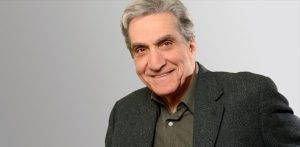 When Robert Pinsky was named Poet Laureate of the United States earlier this year, it felt deeply appropriate. To an unusual degree, Pinsky has mulled, both on the page and off, over the relationship between American civic and private life. Although far from jingoistic, he’s an unabashed patriot who embodies many of our more attractive national traits: ingenuity, open-mindedness, a certain stalwart optimism.
When Robert Pinsky was named Poet Laureate of the United States earlier this year, it felt deeply appropriate. To an unusual degree, Pinsky has mulled, both on the page and off, over the relationship between American civic and private life. Although far from jingoistic, he’s an unabashed patriot who embodies many of our more attractive national traits: ingenuity, open-mindedness, a certain stalwart optimism.
His second volume is called An Explanation of America, and where Pinsky once helped poets make sense of their country, it’s safe to guess that he’ll now prove just as good at spurring the country to take stock of its verse; the art couldn’t find a more effective advocate. Among the endeavors he’s undertaken is his “say a poem” project, whose purpose, Pinsky writes, “is to create an audio and video archive of perhaps a hundred or a hundred-and-fifty Americans each choosing and reading aloud a favorite poem. The archive would be a record, at the end of the century, of what we choose, and what we do with our voices and faces, when asked to say aloud a poem we love.”
Pinsky’s resume reads like a literary version of the American success story. Born in 1940 in Long Branch, New Jersey into a family he describes as lower-middle class, he went to Rutgers, and then, in 1965, won a Stegner Fellowship to Stanford, where he studied with Yvor Winters. Since 1966, he has taught continuously: at the University of Chicago, Wellesley, Harvard, the University of California at Berkeley, and for the past nine years, at Boston University. He was the poetry editor of The New Republic from 1978–1987, and now fills the same position at the online magazine Slate. His books of poetry are Sadness And Happiness (1975), An Explanation of America (1980), History of My Heart (1984), The Want Bone (1990) and The Figured Wheel: New and Collected Poems 1966-1996.
In addition, he cotranslated Czeslaw Milosz’s The Separate Notebooks (1984) and in 1995 produced an acclaimed translation of Dante’s Inferno. Pinsky has also been active as a critic, publishing Landor’s Poetry (1968), The Situation of Poetry (1977) and Poetry and the World (1988). Over the years, he has garnered many prizes and awards, including the William Carlos Williams Award, the Landon Prize in Translation, the Los Angeles Times Book Award, the Shelley Memorial Award and the Ambassador Prize. He’s also been nominated once for the National Book Critics Circle Award in Criticism and once for the Pulitzer Prize in Poetry.
In person, Pinsky is relaxed, amusing, effortlessly charismatic, but also poised, alert, and robust beyond his years. He commands a strong, resonant voice, which he deploys to equal effect whether reciting a passage of George Herbert or spinning an old-time Long Branch yarn. From the metaphysical poets to New Jersey boardwalks, his conversation ranges easily and unaffectedly between subjects high and low. One senses that Pinsky feels nearly as at home in the garage where he gets his Chrysler convertible fixed as in the halls of academe—or, for that matter, of Congress. He’s the refreshing opposite of ivory-towered, and for a poet, uncommonly extroverted.
This interview took place on the campus of Skidmore College, where Pinsky was taking part in the New York State Writers’ Institute. When we entered the apartment in which Pinsky was staying, a saxophone stood on the floor. Our first question was obvious.
INTERVIEWER
You play the sax?
ROBERT PINSKY
I was playing it five minutes ago, to relax before you arrived. I keep the horn out, the way you see it now, and blow it from time to time. In high school, I was ambitious about it, and I played a little in college. Then I took it up again a few years ago—after maybe a thirty-year gap!
INTERVIEWER
Is this the same saxophone as in high school?
PINSKY
No, in the old days I had a great horn, a Buescher Aristocrat—I like the name—that I paid for with money earned playing high-school dances, bar mitzvahs, and so forth. When I went to California, I left the Buescher in my parents’ house, and in their characteristic way, they lost track of it. Maybe it was sold, maybe it was stolen or given away. I must have been twenty-five or -six when that happened, and it provided an excuse to stop playing all those years. Then a few years ago, I went out in a trance and bought this Grassi, an Italian copy of the Selmer Mark VI.
INTERVIEWER
A midlife crisis?
PINSKY
I think my first experience of art, or the joy in making art, was playing the horn at some high-school dance or bar mitzvah or wedding, looking at a roomful of people moving their bodies around in time to what I was doing. There was a piano player, a bass player, a drummer, and my breath making the melody. The audience may not have been thinking, My God, that kid is the best saxophone player I’ve ever heard; I’m positive they weren’t. But we were making music, and the fact that it was my breath making a party out of things was miraculous to me, a physical pleasure. So maybe the horn, this fumbling after a kind of melodic grace and ease I know I’ll never have, stands for a rededication to art itself—with that eager, amateur’s love.
INTERVIEWER
Can you relate the two arts?
PINSKY
There’s a lot of cant about poetry and jazz. And yet there is something there in the idea of surprise and variation, a fairly regular structure of harmony or rhythm—the left margin, say—and all the things you can do inside it or against it. There are passages, like the last two stanzas of “Ginza Samba,” where I try to make the consonants and vowels approach a bebop sort of rhythm.
In Poetry and the World, I wrote: “Poetry is the most bodily of the arts.” A couple of friends who read it in draft said, Well, Robert, you know . . . dancing is probably more bodily than poetry. But I stubbornly left the passage that way without quite having worked out why I wanted to say it like that. Sometimes the ideas that mean the most to you will feel true long before you can quite formulate them or justify them. After a while, I realized that for me the medium of poetry is the column of breath rising from the diaphragm to be shaped into meaning sounds inside the mouth. That is, poetry’s medium is the individual chest and throat and mouth of whoever undertakes to say the poem—a body, and not necessarily the body of the artist or an expert as in dance.
In jazz, as in poetry, there is always that play between what’s regular and what’s wild. That has always appealed to me.
INTERVIEWER
In one of your essays, you quote Housman’s wonderful statement that he knows a line of poetry has popped into his head when his hair bristles and he cuts himself shaving. Is that the kind of thing you mean by the body of the audience?
PINSKY
Well, there is certainly a physical sensation that even subvocalized reading of some particular Yeats or Stevens or Dickinson poem can give me, just the imagination of the sounds. This sensation is as unmistakably physical as humming or imagining a tune.
INTERVIEWER
But it’s pretty rare to see a poetry-reading audience responding with their bodies as if it were a rock concert, isn’t it? Would that be something you’d welcome?
PINSKY
Well, the point isn’t performance. Poetry is a vocal art for me—but not necessarily a performative one. It might be reading to oneself or recalling some lines by memory. That physical tingle, that powerful, audible experience of poetry, has come to me not with poets projecting their own work powerfully to an audience, or with the John-Gielgud-reading-Shakespeare-sonnets records that friends have played for me on their stereos. It tends to be more intimate, less planned, than that. One is alone, or maybe with a friend or two.
Or it might even be in actual school. In my classes, I ask the students to find a poem they like and to get it by heart. To see someone in their late teens or early twenties, often by gender or ethnicity different from the author, shaping his or her mouth around those sounds created by somebody who is perhaps long dead, or perhaps thousands of miles away, and the students bringing their own experience to it, changing it with their own sensibility, so that they’re both possessed and possessing—those moments have been very moving to me. Though the vocal performance may be crude, that crudeness just throws the essence of the poetry into higher relief. Whereas the effective personality of a poet giving a reading or the rich expert tones of an actor reading “When to the sessions of sweet silent thought” might muffle that essence by encasing it within the other art of performance.
INTERVIEWER
To quote from your essay “Some Passages of Isaiah”: “Grandpa Dave stood for the immense beauty and power of idolatry, the adoration of all that can be made and enjoyed by the human body.” Do you feel that your acute focus on making in poetry reflects a need to continue the family line of utility, to shape something that is actual and worldly? Was your fear of poetry straying over into hoity-toity abstractions fostered by your upbringing?
PINSKY
I’m far from immune to the American, perhaps historically male, prejudice toward practical and physical competence; I hope I’ve also considered that prejudice enough to have some distance from it. I come from a class that is lower middle and retail-oriented, and when I was quite young, we were more or less poor, so pragmatism had considerable urgency or necessity.
Both my grandfathers lived within a few blocks of us. One had a bar and had bootlegged during Prohibition; the other was a window washer, a part-time tailor and tinkerer. In an American way, and in line with your question, it is the bootlegger I have written about most. Dave, my father’s father, had a certain swagger, glamour and capacity for violence. I once spoke with a huge old Irish guy who said, More than once I seen your grandfather jump over the bar and knock a guy out. There’s something particularly thrilling and anomalous about that in relation to Jewish life; in Isaac Babel’s stories of Odessa gangsters there are issues and patterns I recognize. I guess violence is one side of that practical, physical skill. But my other grandfather, Morris, could fix clocks and motors; he courted his wife by dazzling her with a motorcycle. (She was married to someone else at the time.) He tuned up his own car, replaced the brake linings, and so forth.
INTERVIEWER
Do you consider that background an advantage to you as a writer?
PINSKY
I certainly wish I had those skills!—and I don’t. But there is a spirit there that I feel grateful toward, and some loyalty. Both grandfathers partook of the pleasures of the marketplace, a term that maybe connotes capitalism. But there’s a more ancient sense of the marketplace or agora, that’s very attractive to me: the public space. It’s the place where people see each other, where they venture out of the family—the shared home away from the hearth. From one point of view, the Odyssey is a great hymn not just to coming home but to cruising the sea, risking Poseidon to see what deals you can make, what you can achieve or learn. I think that the laboring, mercantile, small-town, lower middle class has a lot of respect not only for gain, but for exchange. To see someone, nod to that person and think, as you say hello, Oh yes, that’s an Odiotti. His father had the paint store—or was it his uncle? And he knows vaguely that I must be an Eisenberg or a Pinsky, and that I might have something to do with the bar. We exchange recognition. That’s all part of a certain marketplace fabric that includes a lower-class work ethic, a neighborhood sense of worth, a shrewd practicality. And yes, I suppose there is something in my work as a writer that extends that ethic or reacts against it.
INTERVIEWER
You’ve also shown an affection for the language of trade, notably in your poem “Shirt.”
PINSKY
I grew up with respect for the skills and the knowledge of people who knew how to do things. The tenants in our building and in the rooming houses on either side of us were housepainters, railroad workers, masons, and so forth. In the summer, horse trainers and one or two jockeys. My father was an optician, and there was a whole technical jargon that went with that job.
I suppose I’m the kind of writer who has respect, and maybe some nostalgia, for practical knowledge of the world—for that earthly competence. But it’s important to recognize that there’s a boring cult of competence in American life and literature—especially competence in basic, even primitive skills. There’s a certain amount of baloney, for instance, about fishing and hunting, which is not to say that those things cannot be written about well, also. The baloney and something truly distinguished are not always easy to separate in Hemingway. And Moby-Dick can be read as the world’s best how-to book.
INTERVIEWER
In your essay “American Poetry and American Life,” you salute what you term our poetry’s heteroglossia, its force of contrast between high and low diction. Do you try in your own work to include as many levels of speech as possible?
PINSKY
I would like to keep and somehow unify all the different kinds of experience, and therefore all the different kinds of language, I’ve ever known. I grew up in a neighborhood that you might call—as my mother did, complaining endlessly about having to live there—a slum. It was not monochromatic. There was a lot of variety culturally, ethnically, in class and in kind of education. People spoke with various accents. Ideally, I’d like to write a poetry that pretends neither that I’ve been a professor all my life, nor that I’m still a streetboy. A poetry that doesn’t pretend that I’ve never watched television, and that doesn’t pretend, either, that I’ve never been to graduate school.
I love the way some poems—not only poems by Williams, but by Dickinson or Ben Jonson, too—constantly modulate precise answers to the questions, Who says this? or, Who’s talking? In a satisfying work of art, the answer can change from second to second: the voice proclaiming “That is no country for old men” is subtly different from the one that notices “What is past, or passing, or to come.” The idiom is always flexing, responding like the line in an oscilloscope. It’s not just the plain style, or the grand style or the Eurekan style, but as with the human face in conversation, at once always changing and always itself.
For me, writing has a lot to do with collision and departure. In the anonymous lyric “Western wind, when will thou blow, / The small rain down can rain? / Christ! That my love were in my arms / And I in my bed again,” I love that movement when the poet exclaims, “Christ!” because you haven’t been at “Christ!”—you’ve been addressing the wind, asking it a question. You’re thinking about a “small rain,” and the last thing that would follow a small rain might seem to be Christ. The change from imploring the wind to saying “Christ!” is a gesture of impatience and exaltation. For me that movement, like when an ice skater suddenly changes directions, has a lot to do with what poetry is.
My favorite parts of language may be those places where the distinction between high and low breaks down, because high and low are unsatisfactory, tentative gestures toward describing the flow of language. Is strewn a high word or low? It’s a word roofers use, after all. I’ve spoken elsewhere about going to the hardware store and overhearing a salesman say, You could buy one of these whirling things to distribute the fertilizer, or you can just strew it broadcast. It was the first time I realized that the word broadcast wasn’t coined during the Industrial Revolution, or for Marconi. Farmers walk through the fields with a sack slung over one shoulder, and they broadcast. Obscenities are low by most standards, but fuck, which is a very old word, perhaps contains a quality of loftiness by virtue of being archaic. One of the most exciting phenomena in language—it happens often in Williams and in Stevens—is when you lose the sense of what’s high and what’s low. Is mullion the mullion of Sir Kenneth Clark talking about a church, or is it the mullion of a carpenter saying, Shit, the mullion is too short. We’re going to have to go back and cut some more?
INTERVIEWER
It sounds as if etymology is often a point of departure for you. Will you suddenly wonder what the etymology of fuck or mullion is, and then go look it up? Do you go so far as to browse in etymological dictionaries?
PINSKY
When I was a kid I read the dictionary as an absorbing book, sometimes browsing in it for hours. There’s a lot you can learn from it besides the meanings of words, like why we eat venison and not deer. It’s the same reason we eat pork and not pig, or beef instead of cow: because the food names are the French words, brought over by the Normans. The Saxon who took care of the animal called it a sheep; after it had been slaughtered, cut up and presented to a Norman lord, it was called mutton, because mouton was what the people in the big house ate. Then there are surprises in the dictionary, too, like atonement, which sounds nearly as Latinate as prevaricate. But atonement, as it turns out, comes from “at one”; it means “at one-ment.” That’s interesting.
INTERVIEWER
Two quotes: you say in the first line of “Long Branch, New Jersey” that “Everything is regional,” and then in Poetry and the World that “to make one’s native place illustrious is an acceptable ancient form of claiming personal significance.” Do you feel lucky to come from a place that can be described—as you yourself do—as a microcosm?
PINSKY
In principle, I don’t believe any one person’s experience is rich or poor in itself: we are all in history, and we are in it at the shopping mall exactly as much as or as little as when we are in Tuscany. The mall and Florence, equally, are outcomes of history, and the challenge to our historical perception is merely more egregious in some places than others.
But it’s true that Long Branch has considerable historical interest—right on its surface, in a way. You could argue that Long Branch is where the modern idea of celebrity was born, in the last few decades of the nineteenth century. The town, fairly close to New York by boat or road, was a more raffish resort than Newport and Saratoga Springs, where the social elite went. Long Branch was full of patent-medicine tycoons and theater people, in those days before money and entertainment conferred the kind of status they do today. President Grant loved Long Branch, which suited his rough style. Diamond Jim Brady vacationed there with Lillian Russell: a sportier, lower, more raw and less European elite than at Newport, a social level that you could say evolved a hundred years later, with “high society” dead and gone, into its successor in People magazine. Winslow Homer drew illustrations of people summering in Long Branch for Harper’s; in the Boston Museum of Fine Arts, there’s his great painting of women on the bluffs, called “Long Branch, New Jersey.”
INTERVIEWER
How conscious were you of all that when you lived there?
PINSKY
Hardly at all! Or not until the seventh or eighth grade, when I’m happy to say we did a unit on Long Branch history, using Judge Alton Evans’s WPA book Entertaining a Nation. And I suppose people did talk about some of it. The downtown hotel was called the Garfield-Grant.
But there are other kinds of history, too, in odd survivals that one isn’t aware are survivals at the time. I grew up in an old part of Long Branch, near Flanagan’s Field, where the circus was held. Every summer, elephants, clowns and girls in tights standing on horses paraded right by my house. There were lions in wheeled cages. My friends and I would work for tickets, doing things like setting up chairs, which was tantalizingly close to the mythology of running away with the circus. Once, when I was snooping around in an alley between tents, I ran into a bunch of midgets. One had bleached, slicked-down yellow hair and was immaculately dressed in a suit, like a little boy going to his first communion. He looked at me gawking and said, Who let these fucking son of a bitch, goddamn cocksucking kids in here. Get your goddamn fucking asses out of here!—really virtuoso cussing, but in a high-pitched voice. I can still feel the goosebumps.
And the midget, the vanished tradition of show people, the carny and circus jargon, the European roots and gypsy slang, Barnum—that man cussing me out was the fading voice of all that history. A few years later, everyone was watching television.

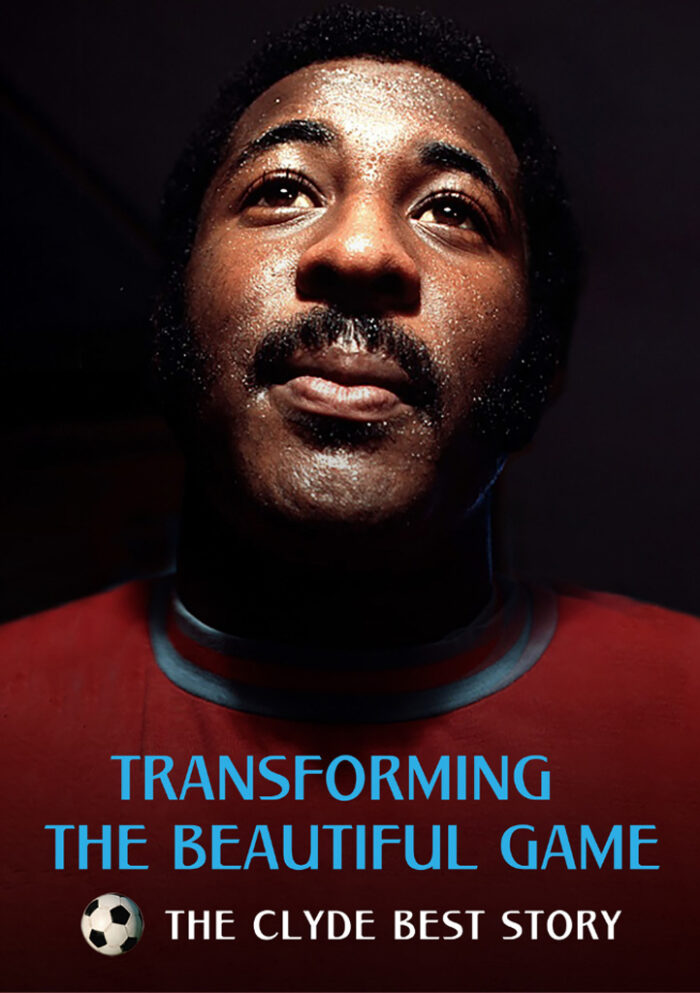
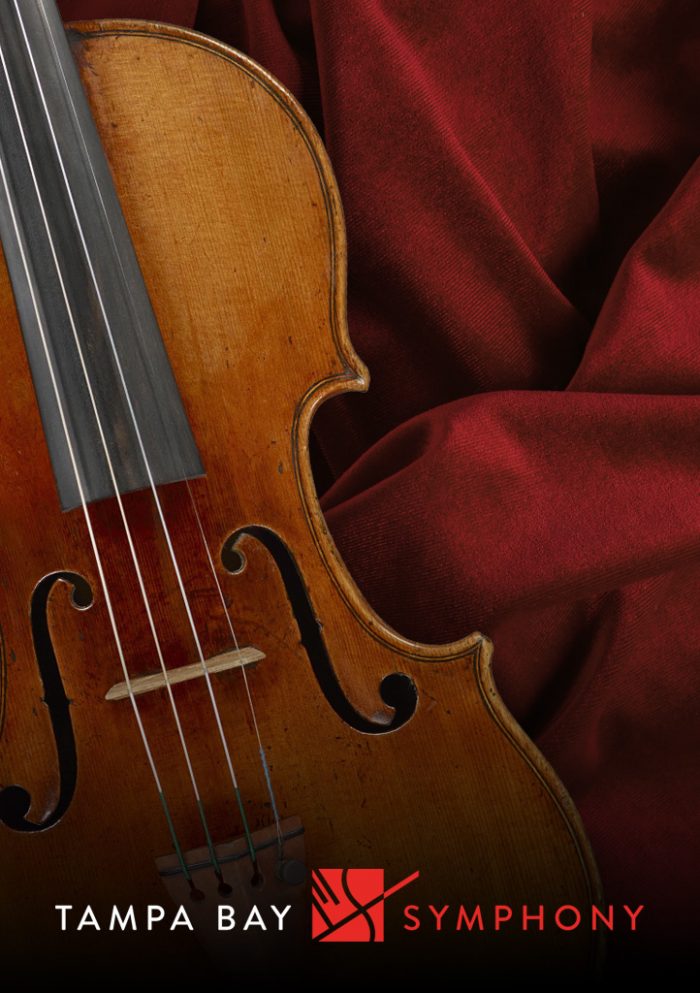
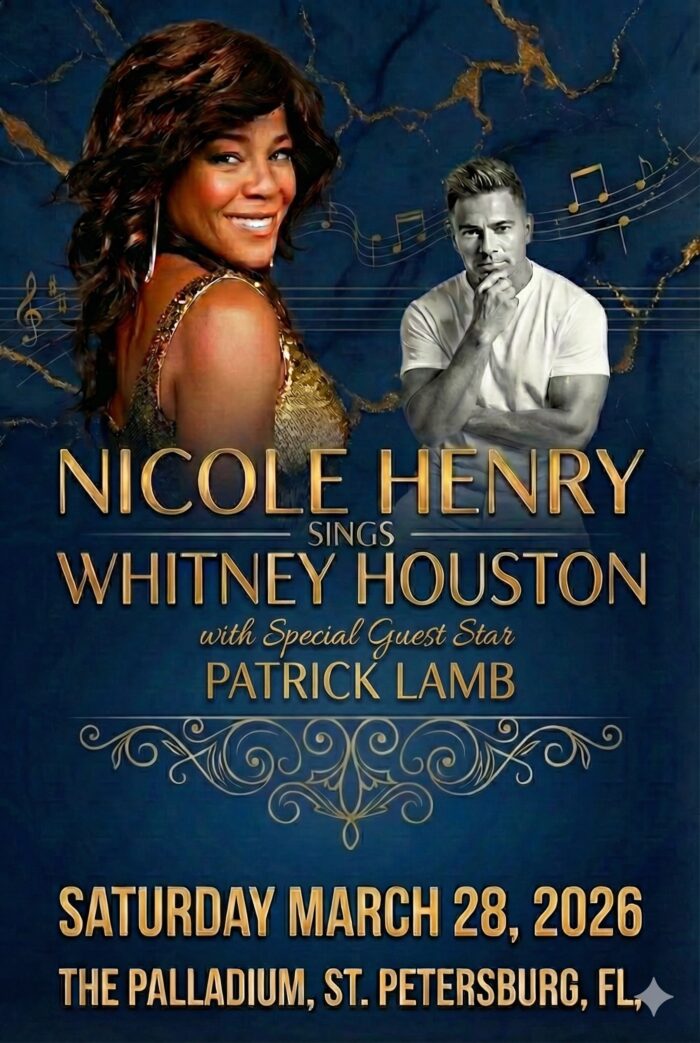
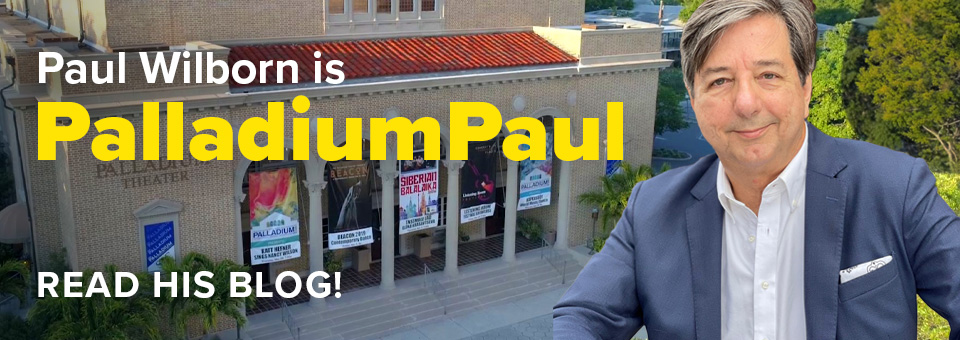
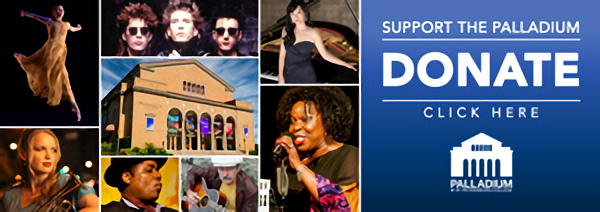

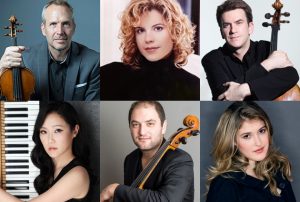
Leave a Reply